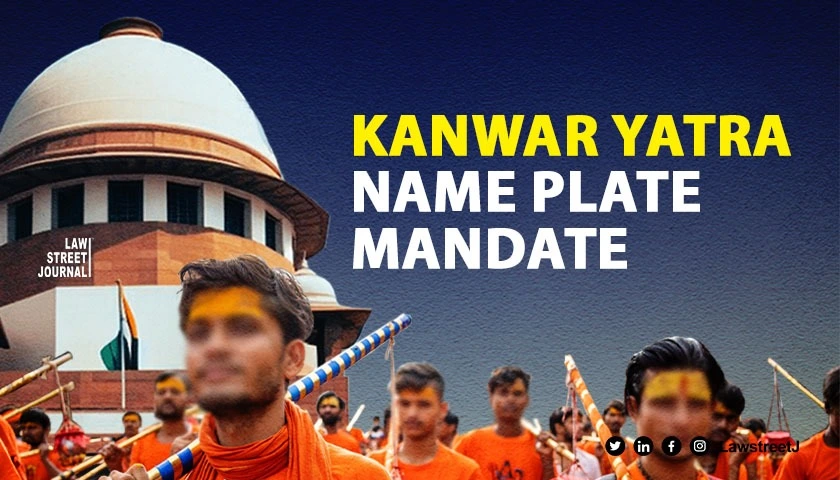NEW DELHI: The Uttar Pradesh government has told the Supreme Court that it paid special attention to all communities and restricted movement of pigs during Muslim festivals, as it defended July 17 directive to all food sellers to display identity of owners and employees during Kanwar Yatra.
The Yogi government said traffic restrictions are in place all over the State during the holy festivals of Muharram and Eid (in fact, as is well known, arrangements are made for village fairs for the sale and purchase of goats during that period).
"Even the movement of pigs is restricted, as it would offend the religious sensibilities of the minority community, which by and large, consider pigs unclean and do not partake of pig meat," it said.
In an affidavit, the state government said the idea behind July 17 directive to all food sellers to display identity of owners and employees was to ensure public safety, order, transparency and informed choice for 'Kanwariyas' who undertake 'yatra' during 'Shravan' month.
Also Read: SC halts directive mandating name displays for hotel owners during Kanwar Yatra [Read Order]
The state also said the directive was temporary in nature for a limited geographical extent.
The order issued by the SSP Muzaffarnagar was non discriminatory and was brought about keeping in mind religious sentiments for those 'Kanwariyas' who prefer 'sativik' foods only and don’t, even accidently, fall foul of their beliefs, it added.
"A mishap in the form of taking a meal unwittingly of a place that would have otherwise not been of their choice, could, for the Kanwaria, vitiate the entire Yatra, peace and tranquillity in the area, the maintenance of which, is the bounden duty of the State," the state government said.
The measure was a proactive one as in the past the misunderstandings regarding the type of food being sold have led to tensions, disturbances and communal flare ups.
Further defending the directive, the state government also pointed out even a complete closure of slaughter houses in Gujarat for a period of nine days during the Jain festival has been upheld by the Supreme Court, keeping in mind the sentiments of the devotees, in Hinsa Virodhak Sangh Vs Mirzapur Moti Kuresh Jamat and Ors (2008).
It also said the directive also aligned with the fundamental duties of citizens as enshrined in Article 51A of the Constitution, which called upon every citizen to promote harmony and the spirit of common brotherhood amongst all the people.
"The Food and Safety Standards (Licensing & Registration of Food Businesses (Regulations), 2011, framed under Section 92(2)(a) read with Section 31 of the Food and Safety Standards Act, 2006, which requires registration of all “petty food” businesses and disclosure of the photo ID of the owner and Registration Certificate, which sadly is lacking in most dhabas, with some even lacking registration," the government said.
During the festivals of all communities, both majority and minority, special attention is bestowed by the State and restrictions are imposed, it pointed out.
The affidavit was filed in response to a notice issued by the Supreme Court on a petition filed by Association for Protection of Civil Rights and others terming the directive issued by SSP Muzaffarnagar as discriminatory and in violation of Article 14, 15, 17, 19(1)(g), and 21 of the Indian Constitution.
On July 22, the Supreme Court had restrained the Uttar Pradesh, Uttarakhand and Madhya Pradesh governments from enforcing their controversial directives to display names of the owners of hotel, shops, eateries and dhabas falling in route of 'Kanwar yatris' (holy expedition).















